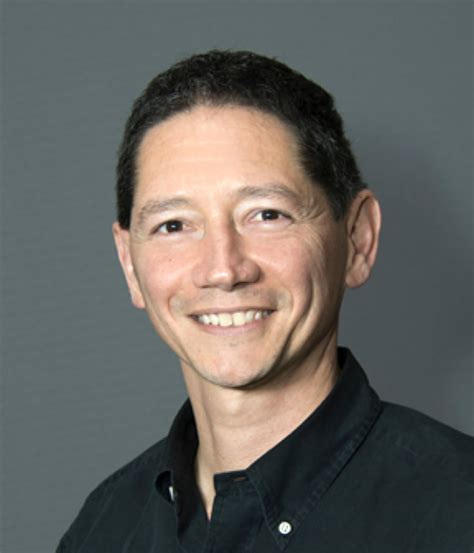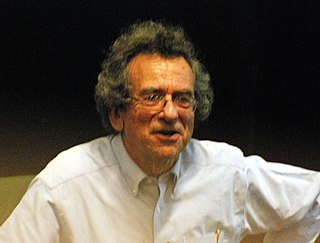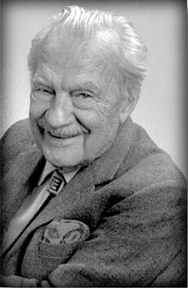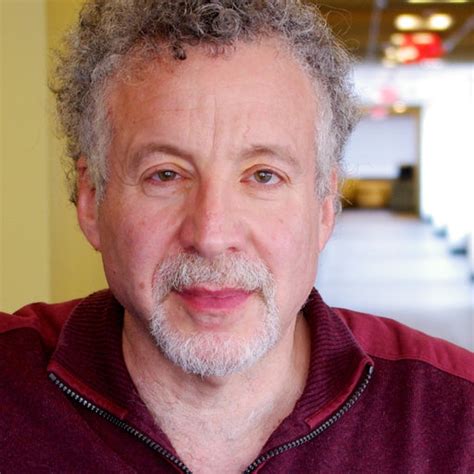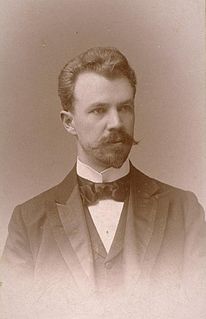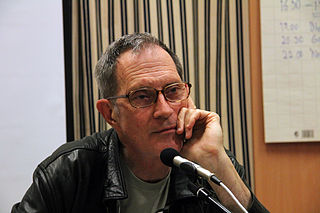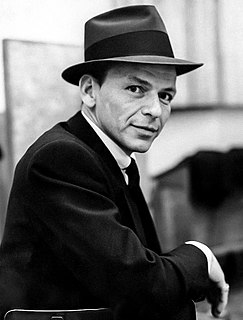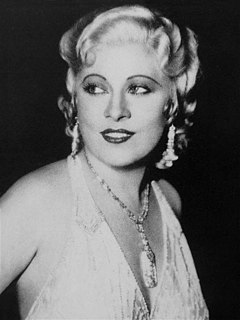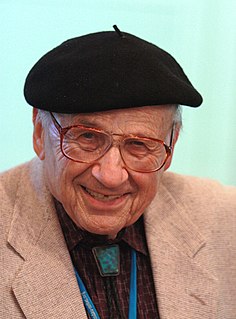Top 484 Einstein Quotes & Sayings - Page 8
Explore popular Einstein quotes.
Last updated on April 20, 2025.
The most important human endeavor is the striving for morality in our actions. Our inner balance and even our very existence depend on it. Only morality in our actions can give beauty and dignity to life. Albert Einstein It is the function of art to renew our perception. What we are familiar with we cease to see. The writer shakes up the familiar scene, and, as if by magic, we see a new meaning in it.
You're here as a spiritual being having a temporary human experience. You come to know your essence - that you came from an energy, a vibrational frequency. Everything in the universe is frequencies. Even things that look solid are all frequencies, all movement. Einstein said nothing happens until something moves. This chair I'm sitting in is moving. It may be hard to imagine, but if you took a microscope and really got in there, you'd see the spaces and a lot of particles all in movement.
One of the great intellectual mistakes Einstein made is that he thought that space and time are physically or ontologically entangled. In the present non-spatial universal computational program, space and time happen to be entangled to the extent that, under certain unique circumstances, changes in spatial measurements indicate changes in temporal ones. However, a change in the program itself may cause space and time to disentangle.
It's happened many times before. Usually it results in an exceptional and gifted human. Some of the greatest figures in Earth's history were actually the product of humans and the Loric, including Buddha, Aristotle, Julius Ceasar, Alexander the Great, Genghis Khan, Leonardo da Vinci, Isaac Newton, Thomas Jefferson, and Albert Einstein... Aprodite, Apollo, Hermes, and Zeus were all real, and had one Loric parent
At that time when I was struggling with being successful in a financial way, people would say, "You should be very happy. Look how well you're doing financially," and I was struggling to find purpose, if you would. There's quote from Einstein that said, "Happiness and well-being are the ambitions of a pig." And I thought, "Boy, that's exactly how I feel."
We could replace people with fossil fuels, have higher and higher levels of industrialization, of agriculture, of production, without thinking of the green-house gases we were admitting, and climate change is really the pollution of the engineering paradigm, when fossil fuels drove industrialism. To now offer that same mindset as a solution is to not take seriously what Einstein said: that you can't solve the problems by using the same mindset that caused them.
Most people believe they know how they themselves think, how others think too, and even how institutions evolve. But they are wrong. Their understanding is based on folk psychology, the grasp of human nature by common sense ¾ defined (by Einstein) as everything learned to the age of 18 ¾ shot through with misconceptions, and only slightly advanced over ideas employed by the Greek philosophers
I've learned to distinguish between the greatness of God and the inexcusable evil that has been done by those professing his name. And so I do not deduce [as Christopher Hitchens does] that God is not great, and that religion poisons everything. After all, if I failed to distinguish between the genius of Einstein and the abuse of his science to create weapons of mass destruction, I might be tempted to say science is not great, and technology poisons everything.
It takes about a year to write an opera for me, but not a really a year of writing. I'm touring at the same time, and I'm playing, sometimes doing smaller projects.[The opera] Akhnaten fits in with Gandhi and Einstein, so that forms a trilogy in a way.I picked people who were these kind of larger than life characters, who kind of changed the world they lived in by almost the force of their personality and their inventiveness. People that I think not only do I admire but I think they're admirable people.
Appealing to his [Einstein's] way of expressing himself in theological terms, I said: If God had wanted to put everything into the universe from the beginning, He would have created a universe without change, without organisms and evolution, and without man and man's experience of change. But he seems to have thought that a live universe with events unexpected even by Himself would be more interesting than a dead one.
We have to start at ground zero and ask what it means to have a real connection with God and what it means to pray. We have to recast our whole understanding of God. We live on the other side of Copernicus, Kepler, Galileo, Isaac Newton, Charles Darwin, Sigmund Freud, Albert Einstein, Steven Hawking, a whole group of people who have recast the way we think about reality.
Science advances by trial and error. When mistakes are made, the peer-review publication process usually roots them out. Cuccinelli's version of the scientific process would be "make an error and go to trial." Einstein did not arrive at E=mc2 in his first attempt. If he were working in the state of Virginia under Cuccinelli today, he could be jailed for his initial mistakes and perhaps never achieve that landmark equation.
If a psychological Maxwell devises a general theory of mind, he may make it possible for a psychological Einstein to follow with a theory that the mental and the physical are really the same. But this could happen only at the end of a process which began with the recognition that the mental is something completely different from the physical world as we have come to know it through a certain highly successful form of detached objective understanding. Only if the uniqueness of the mental is recognized will concepts and theories be devised especially for the purpose of understanding it.
Relativity was a highly technical new theory that gave new meanings to familiar concepts and even to the nature of the theory itself. The general public looked upon relativity as indicative of the seemingly incomprehensible modern era, educated scientists despaired of ever understanding what Einstein had done, and political ideologues used the new theory to exploit public fears and anxieties-all of which opened a rift between science and the broader culture that continues to expand today.
...to live differently, to love differently, to think differently, or to try to. Is the danger of beauty so great that it is better to live without it (the standard model)? Or to fall into her arms fire to fire? There is no discovery without risk and what you risk reveals what you value. Inside the horror of Nagasaki and Hiroshima lies the beauty of Einstein's E=MC squared
17th century philosophers were not in a position to understand the mind as well as we can today, since the advent of experimental methods in psychology. It shows no disrespect for the brilliance of Descartes or Kant to acknowledge that the psychology which they worked with was primitive by comparison with what is available today in the cognitive sciences, any more than it shows disrespect for the brilliance of Aristotle to acknowledge that the physics he worked with does not compare with that of Newton or Einstein.
...contemporary physicists come in two varieties. Type 1 physicists are bothered by EPR and Bell's Theorem. Type 2 (the majority) are not, but one has to distinguish two subvarieties. Type 2a physicists explain why they are not bothered. Their explanations tend either to miss the point entirely (like Born's to Einstein) or to contain physical assertions that can be shown to be false. Type 2b are not bothered and refuse to explain why.
Einstein's space is no closer to reality than Van Gogh's sky . The glory of science is not in a truth more absolute than the truth of Bach or Tolstoy, but in the act of creation itself. The scientist's discoveries impose his own order on chaos, as the composer or painter imposes his; an order that always refers to limited aspects of reality, and is based on the observer's frame of reference, which differs from period to period as a Rembrant nude differs from a nude by Manet.
It would take a civilization far more advanced than ours, unbelievably advanced, to begin to manipulate negative energy to create gateways to the past. But if you could obtain large quantities of negative energy-and that's a big "IF" - then you could create a time machine that apparently obeys Einstein's equation and perhaps the laws of quantum theory.
Let me lay my cards on the table. If I were to give an award for the single best idea anyone ever had, I'd give it to Darwin, ahead of even Newton or Einstein and everyone else. In a single stroke, the idea of evolution by natural selection unifies the realm of life, meaning, and purpose with the realm of space and time, cause and effect, mechanism and physical law. It is not just a wonderful idea. It is a dangerous idea.
I want to travel on a train that smells like snowflakes. I want to sip in cafes that smell like comets. Under the pressure of my step, I want the streets to emit the precise odor of a diamond necklace. I want the newspapers I read to smell like the violins left in pawnshops by weeping hobos on Christmas Eve. I want to carry luggage that reeks of the neurons in Einstein's brain. I want a city's gases to smell like the golden belly hairs of the gods. And when I gaze at a televised picture of the moon, I want to detect, from a distance of 239,000 miles, the aroma of fresh mozzarella.
Facts and theories are different things, not rungs in a hierarchy of increasing certainty. Facts are the world's data. Theories are structures of ideas that explain and interpret facts. Facts do not go away while scientists debate rival theories for explaining them. Einstein's theory of gravitation replaced Newton's, but apples did not suspend themselves in mid-air pending the outcome.
My final coaching point of the day: It's my contention that in any given moment one lives one's life in one of two ways, either under a threat or for a challenge. In performing when it counts, it's one or the other, under a threat or for a challenge. If, as Einstein says, "Imagination will take you everywhere," then living your life under a threat will take you nowhere.
Though perhaps less universally known than such figures as Einstein or Gandhi (who became symbols of our time) Daisetz Suzuki was no less remarkable a man than these. And though his work may not have had such resounding and public effect, he contributed no little to the spiritual and intellectual revolution of our time.
As the twentieth century began, science equaled a materialistic worldview. As the twenty-first century began, the worldview of science, at least of physics and astronomy, may have traded place with that of religion. Consider Einstein's famous equation E = mc2. Nothing of matter dies but continues on in another form, elsewhere. The church divines and theologians for two thousand years have devised arguments and "proofs" of immortality but nothing equal to this.
We relate to Leonardo da Vinci because his genius was just being passionately curious about everything. He wanted to know everything he could know about our universe, including how we fit into it. We can't all have a superhuman intellect like Albert Einstein's, but we can be super-curious. And we can also quit smashing curiosity out of the hands our children.
The key is to trust in your own divinity, to know that you are a piece of God, and that you are like what you came from. As a spiritual being, you have Divinity within. When Albert Einstein was asked about the impact of quantum physics, he said, "It's just all details, I just want to think like God thinks." And God thinks in terms of creating, kindness, beauty and goodness.
Take Einstein; wasn't he looking for something stable and changeless in this enormous, constantly changing melting pot that is the universe? He sought fixed rules. Today, instead, it would be helpful to find all those rules that show how and why the universe is not fixed - how this dynamism develops and acts. Then maybe we will be able to explain many things, perhaps even art, because the old instruments of judgment, the old aesthetics, are no longer of any use to us - so much so that we no longer know what's beautiful and what isn't.
If I were to give a prize for the single best idea anybody ever had, I'd give it to Darwin for the idea of natural selection - ahead of Newton, ahead of Einstein - because his idea unites the two most disparate features of our universe: the world of purposeless, meaningless matter and motion, particles jostling on the one side, and the world of meaning and purpose, design on the other.
A lot of great thinkers- like Einstein and Newton- come up with their best ideas when they're young because they don't yet think in the way that the establishment teaches them. Sometimes your lack of knowledge frees your mind to be creative and think in a different way. But you still have to be logical and figure out a practical way to get things done, even though you're looking at things differently.
I think I'm really part of a whole generational movement in a way. I think a lot of other people since and during this time have gotten interested in writing what we can still call experimental music. It's not commercial music. And it's really a concert music, but a concert music for our time. And wanting to find the audience, because we've discovered the audience is really there. Those became really clear with Einstein on the Beach.
What I remember most clearly was that when I put down a suggestion that seemed to me cogent and reasonable, Einstein did not in the least contest this, but he only said, 'Oh, how ugly.' As soon as an equation seemed to him to be ugly, he really rather lost interest in it and could not understand why somebody else was willing to spend much time on it. He was quite convinced that beauty was a guiding principle in the search for important results in theoretical physics.
I'm still happy with the way Einstein's Dreams came out. That book came out of a single inspiration. I really felt like I was not creating the words, that I was hearing the words. That someone else was speaking the words to me and I was just writing them down. It was a very strange experience. That can happen with a short book. I don't think it could happen with a long book.
But, contrary to the lady's prejudices about the engineering profession, the fact is that quite some time ago the tables were turned between theory and applications in the physical sciences. Since World War II the discoveries that have changed the world are not made so much in lofty halls of theoretical physics as in the less-noticed labs of engineering and experimental physics. The roles of pure and applied science have been reversed; they are no longer what they were in the golden age of physics, in the age of Einstein, Schrödinger, Fermi and Dirac.
Which is to say that culture is not a reflex of political economy, but
that society is now a reflex of key shifts in music theory and practice....
[Sampladelia is] the sound made by those early-twentieth-century discoveries
in particle physics and relativiity theory, the projection of the minds of
Einstein, Heisenbery, and Bohr, their fateful explorations of liquid time,
curving space, uncertainty fields and relativity theorems, into densely
configured and fully ambivalent android music tracks
Bistromathics itself is simply a revolutionary new way of understanding the behavior of numbers. Just as Einstein observed that space was not an absolute but depended on the observer's movement in space, and that time was not an absolute, but depended on the observer's movement in time, so it is now realized that numbers are not absolute, but depend on the observer's movement in restaurants.
The medieval theologian who gazed at the night sky through the eyes of Aristotle and saw angels moving the spheres in harmony has become the modern cosmologist who gazes at the same sky through the eyes of Einstein and sees the hand of God not in angels but in the constants of nature. When confronted with the order and beauty of the universe and the strange coincidences of nature, it¹s very tempting to take the leap of faith from science into religion. I am sure many physicists want to. I only wish they would admit it.
Nothing is done. Everything in the world remains to be done or done over. The greatest picture is not yet painted, the greatest play isn't written, the greatest poem is unsung. There isn't in all the world a perfect railroad, nor a good government, nor a sound law. Physics, mathematics, and especially the most advanced and exact of the sciences are being fundamentally revised. . . Psychology, economics, and sociology are awaiting a Darwin, whose work in turn is awaiting an Einstein.
It is time to remind Sharon that the star of David belongs to all Jews, not to his repulsive Government. His actions are staining the star of David with blood. The Jewish people, whose gifts to civilised discourse include Einstein and Epstein, Mendelssohn and Mahler, Sergei Eisenstein and Billy Wilder, are now symbolised throughout the world by the blustering bully Ariel Sharon, a war criminal implicated in the murder of Palestinians at the Sabra and Shatila camps and now involved in killing Palestinians once again.
As Einstein queried, 'Why is it that I get my best ideas in the morning while I'm shaving?' Shaving is like meditation with a sharp object. When the mind is empty and receptive, big ideas flow through every cell of our body. When we're thinking too hard, we tense up and nothing can flow through us; our energy gets stuck in our heads. Sometimes you have to take a leap of faith and trust that if you turn off your head, your feet will take you where you need to go.
I am encouraged as I look at some of those who have listened to their "different drum": Einstein was hopeless at school math and commented wryly on his inadequacy in human relations. Winston Churchill was an abysmal failure in his early school years. Byron, that revolutionary student, had to compensate for a club foot; Demosthenes for a stutter; and Homer was blind. Socrates couldn't manage his wife, and infuriated his countrymen. And what about Jesus, if we need an ultimate example of failure with one's peers? Or an ultimate example of love?
Life itself today has lost its plane reality: it is projected, not along the old fixed points, but along the dynamic coordinates of Einstein, of revolution. In this new projection, the best-known formulas and objects become displaced, fantastic, familiar-unfamiliar. This is why it is so logical for literature today to be drawn to the fantastic plot, or to an amalgam of reality and fantasy.
I believe in you and me. I'm like Albert Schweitzer and Bertrand Russell and Albert Einstein in that I have a respect for life -- in any form. I believe in nature, in the birds, the sea, the sky, in everything I can see or that there is real evidence for. If these things are what you mean by God, then I believe in God. But I don't believe in a personal God to whom I look for comfort or for a natural on the next roll of the dice.
Epitaph on Newton: Nature and Nature's law lay hid in night: God said, "Let Newton be!," and all was light. [added by Sir John Collings Squire: It did not last: the Devil shouting "Ho. Let Einstein be," restored the status quo] [Aaron Hill's version: O'er Nature's laws God cast the veil of night, Out blaz'd a Newton's soul and all was light.
There was a blithe certainty that came from first comprehending the full Einstein field equations, arabesques of Greek letters clinging tenuously to the page, a gossamer web. They seemed insubstantial when you first saw them, a string of squiggles. Yet to follow the delicate tensors as they contracted, as the superscripts paired with subscripts, collapsing mathematically into concrete classical entities - potential; mass; forces vectoring in a curved geometry - that was a sublime experience. The iron fist of the real, inside the velvet glove of airy mathematics.
If I ask you who is the most famous scientist who ever lived, or the greatest scientist who ever lived you'll say either Einstein or Newton or something like that because their claims were supposed to apply universally. But the claim of somebody who is studying a particular feature of the evolutionary process like whether it's very fast or very slow, or occurs in steps and so on, that's not a universal claim, that's a rather specialised claim and so you can't claim to great fame and great success.
Akhnaten is kind of a dark, kind of mysterious character. We don't know a lot about him - a lot of information on him was lost. But he obviously was a kind of iconoclast of him time. I guess I'm attracted to people like that. Like [Albert] Einstein also, who radically changed our way of thinking about the world we live in.
A popular feel for scientific endeavors should, if possible, be restored given the needs of the twenty-first century. This does not mean that every literature major should take a watered-down physics course or that a corporate lawyer should stay abreast of quantum mechanics. Rather, it means that an appreciation for the methods of science is a useful asset for a responsible citizenry. What science teaches us, very significantly, is the correlation between factual evidence and general theories, something well illustrated in Einstein's life.
I am Plato's Republic. Mr. Simmons is Marcus. I want you to meet Jonathan Swift, the author of that evil political book, Gulliver's Travels! And this other fellow is Charles Darwin, and-this one is Schopenhauer, and this one is Einstein, and this one here at my elbow is Mr. Albert Schweitzer, a very kind philosopher indeed. Here we all are, Montag. Aristophanes and Mahatma Gandhi and Gautama Buddha and Confucius and Thomas Love Peacock and Thomas Jefferson and Mr. Lincoln, if you please. We are also Matthew, Mark, Luke, and John.
More people saw me than saw Napoleon, Lincoln and Cleopatra. I was better known than Einstein and Picasso. ... I changed the fashion of two continents. The style of the Gay Nineties became the rage ... women were trying to walk and talk like me. Women became more sex-conscious - sex was out in the open and fun.
The result of [the] cumulative efforts to investigate the cell - to investigate life at the molecular level - is a loud, clear, piercing cry of 'design!' The result is so unambiguous and so significant that it must be ranked as one of the greatest achievements in the history of science. The discovery rivals those of Newton and Einstein, Lavoisier and Schrödinger, Pasteur, and Darwin. The observation of the intelligent design of life is as momentous as the observation that the earth goes around the sun.
I've been working in theater, really, since about 1965. I started working with the Mabou Mines about then, and in a way I've always worked in the theater, but it's never been a main part of my work. And it wasn't until Einstein that I kind of shifted into high gear with theater, working with Bob, with Bob Wilson. And since then I find it a very attractive form to work in. It's just an extension of my work.
Long before Einstein told us that matter is energy, Machiavelli and Hobbes and other modern political philosophers defined man as a lump of matter whose most politically relevant attribute is a form of energy called "self-interestedness". This was not a portrait of man "warts and all". It was all wart - except that the dominating attribute was not considered a blemish.
Once again, my colleague Stephen Hawking has upset the apple cart. The event horizon surrounding a black hole was once though to be an imaginary sphere. But recent theories indicate that it may actually be physical, maybe even a sphere of fire. But I don't trust any of these calculations until we have a full-blown string theory calculation, since Einstein's theory by itself is incomplete.
I am very much a scientist, and so I naturally have thought about religion also through the eyes of a scientist. When I do that, I see religion not denominationally, but in a more, let us say, deistic sense. I have been influence in my thinking by the writing of Einstein who has made remarks to the effect that when he contemplated the world he sensed an underlying Force much greater than any human force. I feel very much the same. There is a sense of awe, a sense of reverence, and a sense of great mystery.
Evidence in support of general relativity came quickly. Astronomers had long known that Mercury’s orbital motion around the sun deviated slightly from what Newton’s mathematics predicted. In 1915, Einstein used his new equations to recalculate Mercury’s trajectory and was able to explain the discrepancy, a realization he later described to his colleague Adrian Fokker as so thrilling that for some hours it gave him heart palpitations.
e idea of a personal God is quite alien to me and seems even naive. However, I am also not a "Freethinker" in the usual sense of the word because I find that this is in the main an attitude nourished exclusively by an opposition against naive superstition. My feeling is insofar religious as I am imbued with the consciousness of the insuffiency of the human mind to understand deeply the harmony of the Universe which we try to formulate as "laws of nature." It is this consciousness and humility I miss in the Freethinker mentality. Sincerely yours, Albert Einstein.












